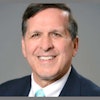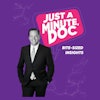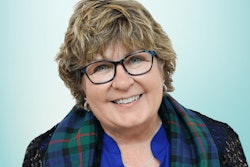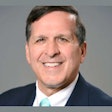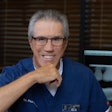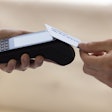As a firm believer in growing, evolving, and striving to be a better person, this intentional practice includes meditation, eating nourishing foods, strength training, learning from mistakes (my own and others), many educational courses, and insight from inspirational people. One of my favorite quotes is from the late Maya Angelou who said, "Do the best you can until you know better. Then when you know better, do better."
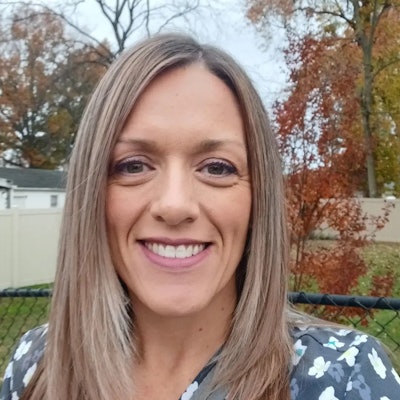 Lora Graetzer.
Lora Graetzer.
When you know better, do better! How simple and so very true. You can't do or be better until you know better, right?
How do we know better? How do you know what you don't know? Education! Knowledge is power. Being open and receptive to learning in all forms expands your knowledge and skills. There are numerous ways to learn: webinars, in-person courses, online modules, vendor demonstrations, peers, and mentors.
To expand your knowledge, start by determining your learning style
Information is provided in many forms, and your style can change over time or be a mix of the following three styles:
- Visual learners like presentations with graphs, pictures, videos, and illustrations. They also want to take detailed notes and enjoy diagrams to explain concepts.
- Auditory learners retain information most by actively listening. They enjoy participating in group discussions and listening to lectures and podcasts.
- Tactile or kinesthetic learners enjoy hands-on activities like role-playing, note-taking, or anything with physical participation.
After you've determined how you learn best, set goals for yourself
Small sets of goals that achieve your larger goal make tracking progress manageable. Some example goals could be obtaining ADA coding certificates; medical/dental coding certificates; a dental radiology license; a certified dental assistant, an expanded function dental assistant, a certified orthodontic assistant, a registered dental hygienist, a certified in dental infection prevention and control, a dental industry specialist in infection prevention and control designation; or other professional designations.
Goals can also be singular areas of interest, such as learning more about dental coding and medical billing, improving your phone skills, increasing treatment acceptance, treatment and finance presentations, and understanding human resources better or HIPAA/U.S. Occupational Safety and Health Administration regulations. There's a course for everything and anything clinical or administrative.
Once you've set your goal, seek out courses to meet your goal
The checklist of courses or requirements could be short or long, depending on the qualifications needed to attain your goal. You must take the first step, complete that course, and start the next one. You will continue to check the boxes on your goal outline until you've finished and reached your larger goal. You will learn new skills, attain more knowledge, and learn to do better during your journey!
Educational courses are offered by various sources, including the American Association of Dental Office Management (AADOM), the Dental Assisting National Board, the DALE Foundation, the Association for Dental Safety, the Academy of General Dentistry, the ADA, the American Dental Hygienists' Association, the American Dental Assistants Association, and AADOM-approved dental professional learning networks such as Viva Learning, Dentalflix, local study clubs, and Oral-B, among others. Be sure that your course is approved by the Providers of Approved Continuing Education wherever you choose to take it.
Take advantage of technology
You can take live courses virtually, watch recorded webinars, or take self-study course modules online. Today's technology allows for note-taking electronically with easy accessibility and the ability to save diagrams/graphs/notes electronically as guides or review material.
Embrace lifelong learning
While there may not be a standardized definition, lifelong learning is a form of self-initiated education focused on personal and professional development. Lifelong learning improves your self-esteem and mental health and gives you the skills to adapt to an ever-changing industry.
According to UNESCO's "Learning: The Treasure Within," education throughout life is based on four pillars: learning to know, learning to do, learning to live together, and learning to be.
- Learning to know by broad general knowledge with the opportunity to work in-depth on several subjects. This also means learning to learn and benefit from education opportunities.
- Learning to do, to gain occupational skills, the competence to deal with various situations, and to work in teams. It also means learning to do in the context of social and work experiences, which may be informal or formal, involving courses and alternating study and work.
- Learning to live together by developing an understanding of other people and an appreciation of interdependence -- carrying out joint projects and learning to manage conflicts -- in a spirit of respect for the values of pluralism, mutual understanding, and peace.
- Learning to be, developing one's personality, and acting with greater autonomy, judgment, and personal responsibility.
Continually review your knowledge
As workplaces, technologies, software, and ways of doing tasks evolve, you must evolve with them. Sharpening your skills is your response to industry needs. It's critical to know and do better!
Implement new skills and knowledge
Apply the new skills and knowledge in the workplace and start doing better! Practice what you've learned in real-world scenarios, seek feedback, and adjust accordingly. Practice, practice, and practice some more. Share your knowledge and be a mentor to others.
Start your journey to betterment by setting goals, taking courses, using technology to your advantage, embracing lifelong learning, continually looking for new knowledge, and then implementing and sharing new skills and knowledge. Following these practices will keep you confident, adaptable, and relevant. Being the better version of yourself can open doors to new opportunities. So as Maya Angelou said, "Do the best you can until you know better. Then when you know better, do better."
Lora Graetzer is a master and lifetime member of the AADOM. Graetzer is the vice president of the BAM (Baltimore/Annapolis, MD) Leadership League, an AADOM-approved dental professional learning network and the 2024 tier II chapter of the year.
The comments and observations expressed herein do not necessarily reflect the opinions of DrBicuspid.com, nor should they be construed as an endorsement or admonishment of any particular idea, vendor, or organization.
